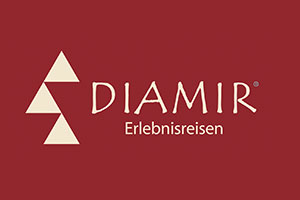Travel tips for nigeria
Top 5 Experiences
From a thriving start-up sector to sprawling national parks – this is Nigeria:

Beaches
Nigeria offers a beautiful coastal area with serene beaches such as Tarkwa Bay in Lagos, Elegushi Beach, and Ibeno Beach in Akwa Ibom. These locations offer opportunities for relaxation, water sports, and stunning sunset views.

national Parks
Nigeria is home to diverse ecosystems, and you can explore its natural beauty in national parks and wildlife reserves like Yankari National Park, Cross River National Park, and Gashaka-Gumti National Park. Witness wildlife, lush landscapes, and cultural diversity.

Culture
Discover Nigeria’s rich cultural heritage through historical sites like the ancient city of Benin, Osun-Osogbo Sacred Grove, and the Sukur Cultural Landscape. Explore traditional art, music, and vibrant festivals.

Local Cuisine
Savor the flavors of Nigerian cuisine, known for its diverse dishes, including jollof rice, suya, and pounded yam with egusi soup. Local markets and restaurants offer a taste of authentic Nigerian food.

Afrobeat
Nigeria is famous for its music, including Afrobeat and highlife. Enjoy live music performances and explore art galleries to experience the country’s vibrant arts scene.
Tourism Infrastructure
Nigeria has a network of domestic flights, bus services, and roadways connecting major cities. While some roads are well-maintained, others may need repair.
Tourists can choose from a wide range of accommodation options, including luxury hotels, boutique guesthouses, and budget-friendly lodgings. Many of these establishments offer comfortable stays and easy access to tourist attractions.
Climate and travel season
Nigeria experiences a tropical climate with a wet season from April to October and a dry season from November to March. It’s important to plan your visit around these seasons for the best experience.
Visa and Entry
German nationals must obtain a visa for Nigeria. Visas are usually applied for in person at Nigerian diplomatic missions in Berlin or Frankfurt am Main, with limited online exceptions. Visa processing may take over three weeks, offering three months‘ validity with a maximum four-week stay. Short-term visas do not permit employment, and work visas must be sought separately at the Nigerian Embassy in Berlin. A select group may apply for ‚Visa on arrival‘ online in advance, accompanied by a written confirmation for issuance upon entry for certain circumstances. .
Stories
International Hotel Chains Are Driving the Hotel Boom in Africa
Frankfurt, 03 April 2024 - The "Big 5" of global hotel chains - Accor, Hilton, IHG, Marriott International and Radisson ...
Internationale Hotelketten treiben den Hotelboom in Afrika voran
ReThinking Africa Initiative setzt sich für Investitionen in Afrikas Tourismuswirtschaft ein Frankfurt, 03. April 2024. Die „Big 5“ der globalen Hotelketten ...
Voice4Africa x ReThinking Africa News March
KLEBER Group x ReThinking Africa News March 2024 Content Foreword Investment in Africa's tourism industry as a driver for sustainable ...
Our partners in Nigeria
General updates
Current accessibility
Corona precautionary measures
Status: 03.03.2022











